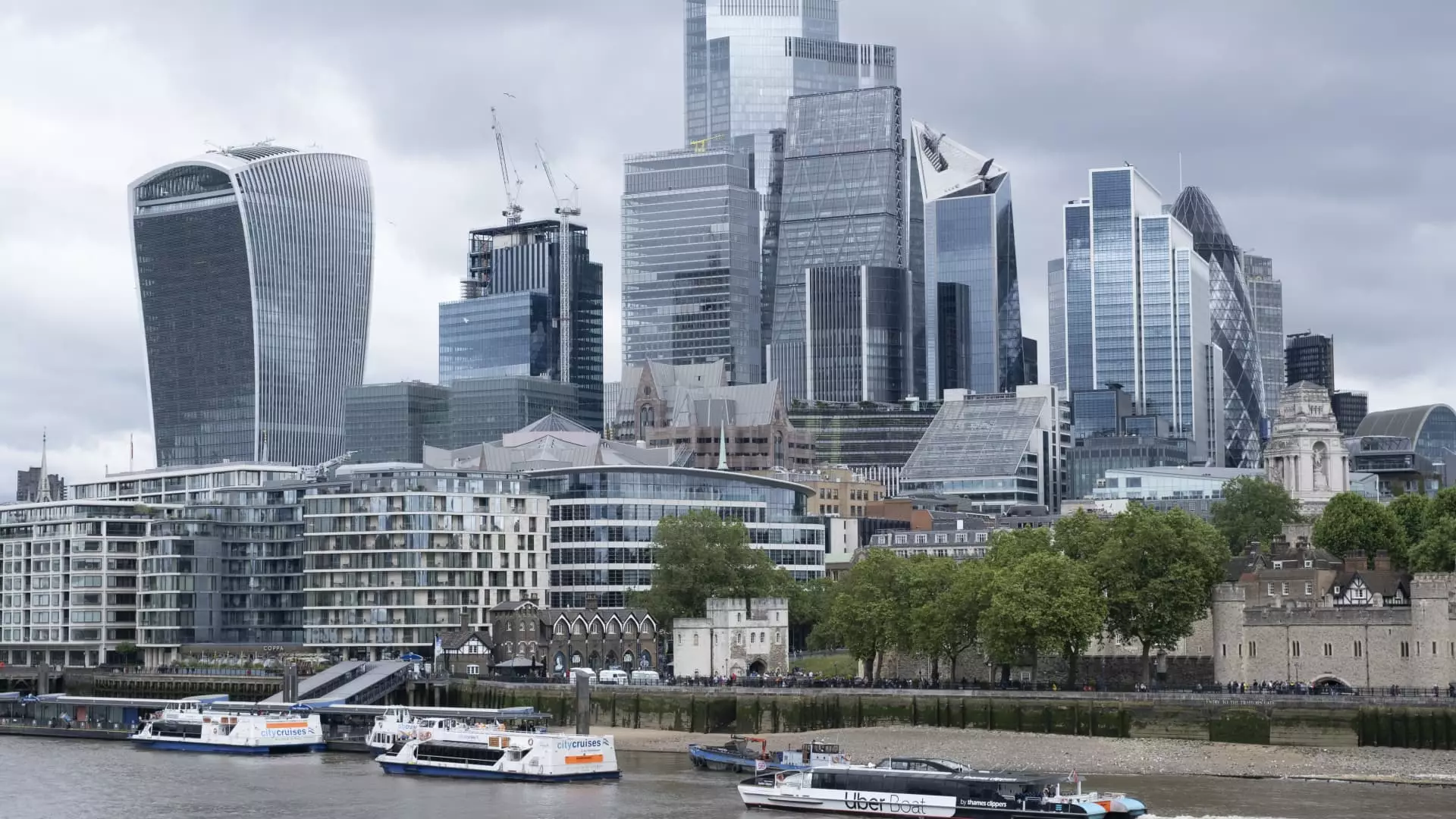The International Monetary Fund (IMF) recently updated its growth projections for the United Kingdom, signaling a cautiously optimistic tone for the country’s economic landscape in 2024. Its forecast now predicts a 1.1% growth rate, a notable improvement from the July prediction of just 0.7%. This revision comes alongside assertions that inflation and declining interest rates are poised to bolster domestic consumption, which is a critical driver of economic recovery and stability.
A multifaceted component affecting this outlook is the notable decrease in inflation, which has dwindled from an alarming 11.1% in October 2022 to a more manageable 1.7% as of September this year. Such drastic changes in inflation dynamics indicate a potential easing of financial pressures on households, which should enhance consumer confidence. The anticipated reduction in service inflation and wage growth has catalyzed expectations of a more aggressive posture from the Bank of England regarding interest rates, which may see a reduction from 5.25% to 4.5% by the close of 2024.
Internally, consumer sentiment plays a pivotal role in shaping economic conditions. The recent trends indicate a complex scenario where uncertainty regarding a new budget from the Labour Party has initially dampened consumer confidence. Nevertheless, the S&P Global UK Consumer Sentiment Index unveiled a slight uptick in public optimism. Households appear increasingly willing to engage in significant purchases, hinting at a potential revival in consumer spending.
The forthcoming Labour budget is generating considerable attention as it marks the party’s first financial plan in over a decade. Prime Minister Keir Starmer has hinted that it will necessitate “tough” fiscal decisions to address an alleged £22 billion funding shortfall. This claim has been met with skepticism from former Conservative leaders, revealing the contentious political backdrop against which these economic discussions are occurring. The complexities of taxation and government spending continue to loom large, as Starmer promises to avoid tax increases on income and corporations while also advocating for a broader tax package to ensure long-term fiscal sustainability.
While the IMF’s upgrade of the UK’s growth outlook is welcome, it is essential to contextualize this within a broader international framework—particularly with shifts in expectations for the eurozone, whose growth forecast has been revised downward to 0.8% due to stagnation, particularly in Germany. This downward trend raises concerns about the interconnected stability of European economies and how they might influence, or be influenced by, the UK’s economic trajectory.
Moreover, the IMF’s projections for advanced economies, such as the United States and Canada, reflect varying levels of optimism. The U.S. is forecasted to grow by 2.8%, presenting a stark contrast to Japan’s meager 0.3% growth expectation, hinting at the diverse economic realities worldwide. These contrasting scenarios illustrate how local challenges, such as high inflation in Japan or competitive pressures in Germany’s manufacturing sector, can significantly impact national economic performance.
While the IMF’s projections speak of a brighter future for the UK economy, significant challenges remain. The interplay of rising consumer sentiment, the delicate balancing of government budgets, and shifting political tides all contribute to an uncertain economic environment. The real question isn’t just whether the UK will experience growth, but how sustainable that growth will be amidst the multifarious challenges that lie ahead. A cohesive and proactive approach will be paramount if the UK is to navigate these tumultuous waters and achieve the sustained growth that its policymakers and citizens desperately desire. The path forward will require both prudent management of immediate economic imperatives and a commitment to fostering an environment conducive to long-term prosperity.

